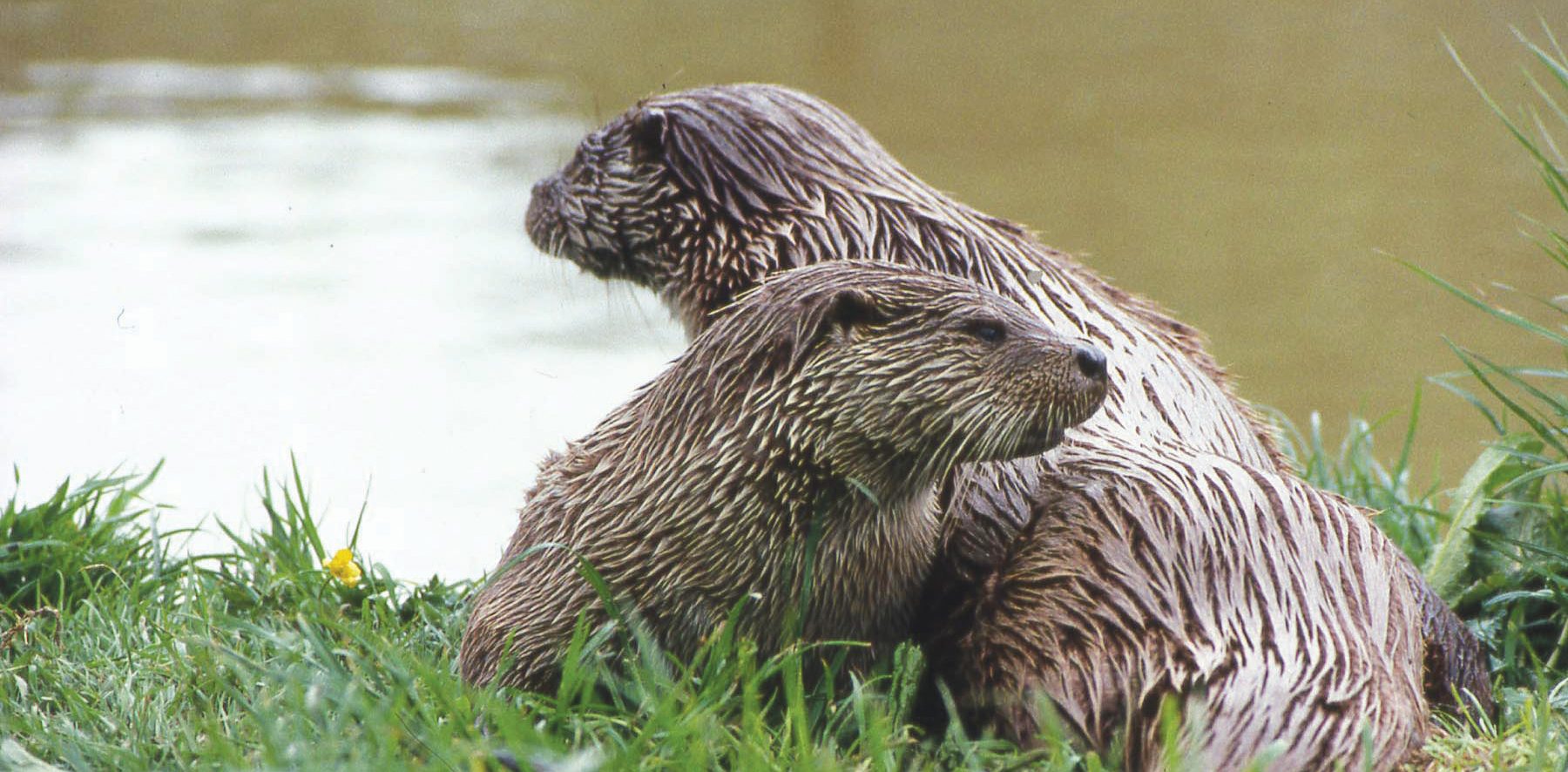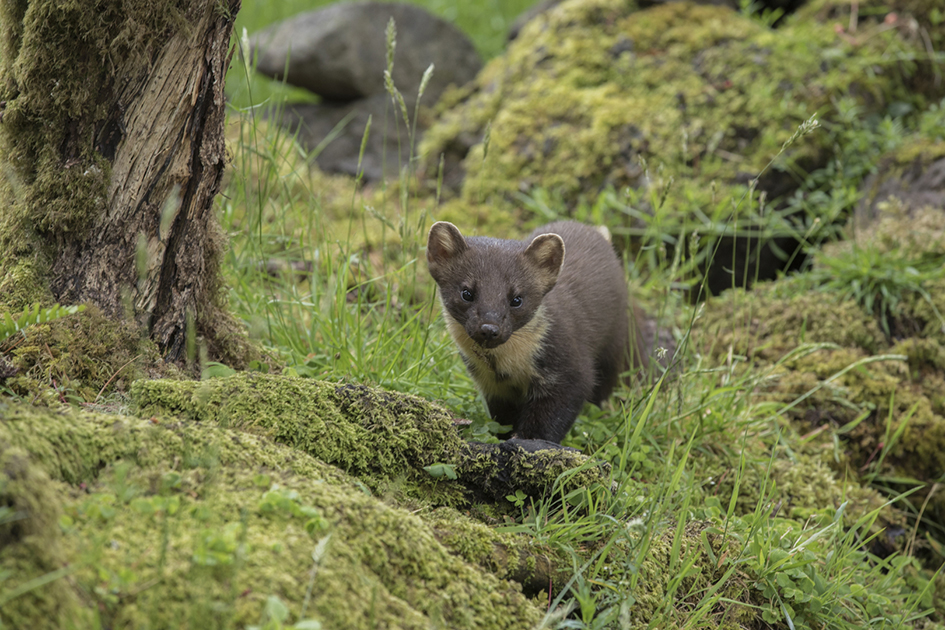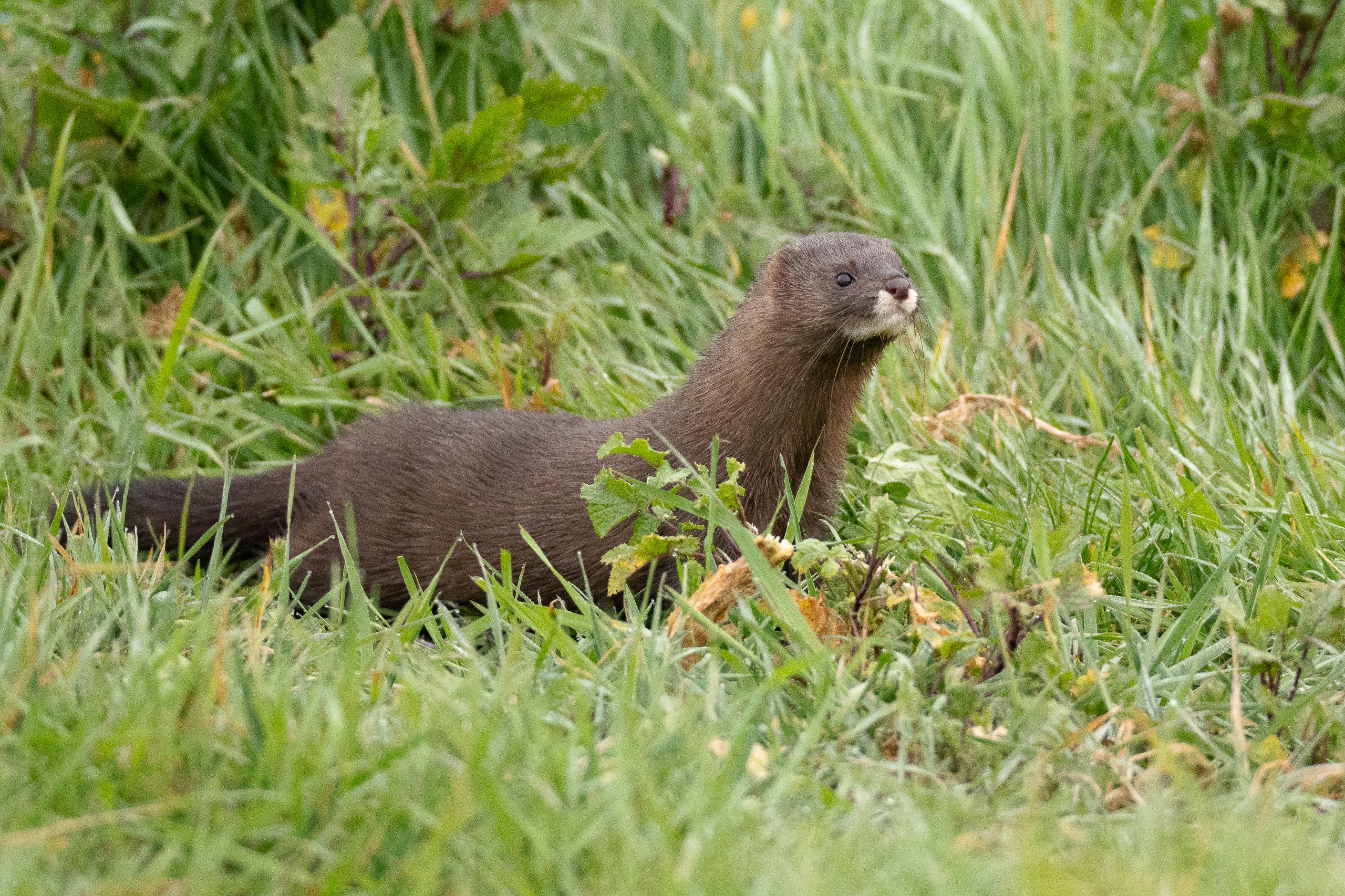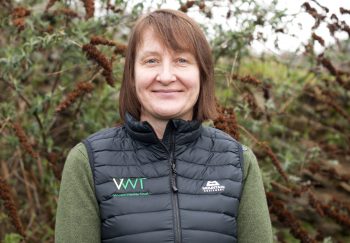
VWT will officially be 50 years old in November 2025 but we will be marking the anniversary throughout the year in a variety of ways. One of which is by inviting past and present staff, volunteers, trustees and our partners for their own reflections and stories on VWT in a series of blogs.
There is a lot to celebrate in terms of what VWT has achieved over the last 50 years — in particular highlighting the catastrophic population declines in some of our most iconic British mammals and more significantly, developing innovative and evidence-led solutions to successfully reverse these declines for species such as otters, water voles, horseshoe bats and pine martens.

Otters are now found in every county in England ©Johnny Birks
It all started with the Honourable John Vincent Weir who founded Vincent Wildlife Trust in 1975. As a businessman, naturalist and philanthropist he generously funded and endowed VWT from his own fortune, giving VWT the stability to grow into the thriving organisation it is today. He also provided funding to a number of other conservation charities, including Plantlife, Butterfly Conservation and the Amphibian and Reptile Conservation Trust, allowing them the opportunity to develop and become established in their own specialist areas.
We are very proud of our many achievements, which focus on population recovery of rare bats and carnivores, wildlife conflict management and innovative solutions to conservation. See our most recent Annual Report and Ten-Year Strategy for details.

Greater horseshoe bat with pup in the newly restored roost in Southeast England ©Daniel Hargreaves
Notable examples over the years, which we will highlight during 2025, include: the translocation of more than 100 pine martens from Scotland to England and Wales over the last ten years, enabling the reestablishment of pine marten populations in Wales, Gloucestershire and Devon; the pioneering UK-wide monitoring of otter, polecat and water vole population range; the safeguarding of 50% of the UK greater horseshoe bat population; the assisted re-colonisation of greater horseshoe bats to southeast England through the purchase and repair of suitable bat roosts and habitat in the region; and the first Species Action Plan for the lesser horseshoe bat in Ireland ensuring coordinated conservation from all partners over the following five years.

More than 100 pine martens have been successfully translocated to Wales and southwest England ©Robert Cruickshanks
While it is fair to say that had VWT not existed, the British and Irish mammal fauna would be far more impoverished than it is today, there is a lot to reflect on as well as to celebrate. This is a deeply challenging time for the natural world — since VWT started in 1975, threats to biodiversity have only increased and now a rapidly changing climate is vastly compounding these threats.
The next 50 years will be critical in holding the line, slowing the rate at which species are declining and, where possible, ensuring the recovery of our mammal fauna. This can feel overwhelming, but the impact of VWT over the last 50 years shows what can be achieved — and inspires us to continue to work in partnership with individuals, organisations and communities and increase our impact in safeguarding threatened mammals in Britain, Ireland and mainland Europe.

European mink ©Romain Beaubert

Lucy Rogers — VWT’s CEO